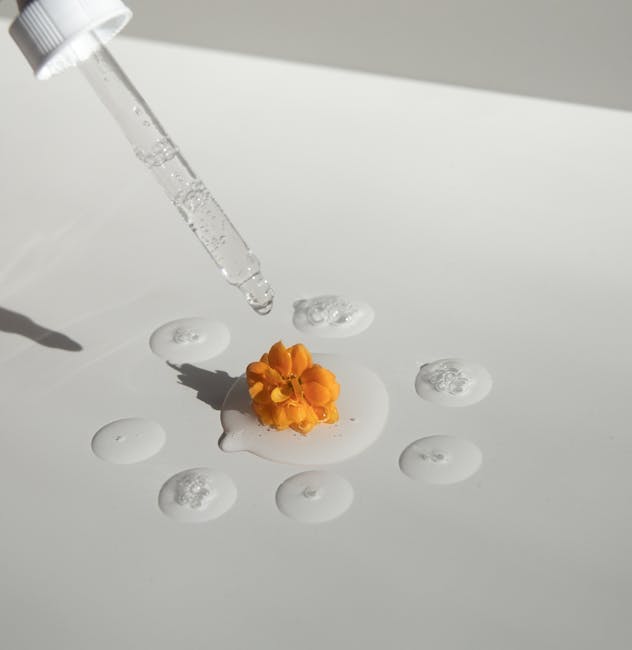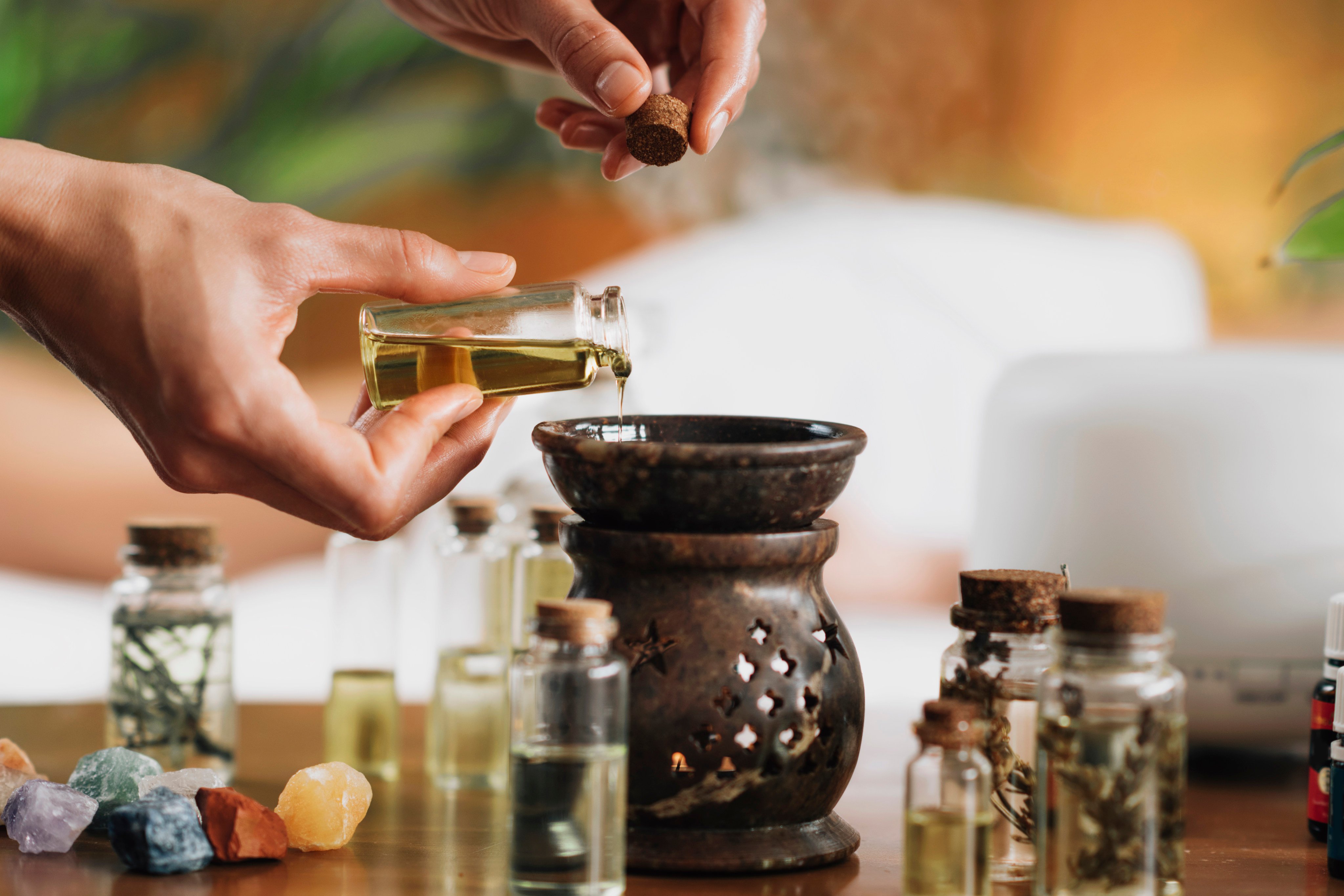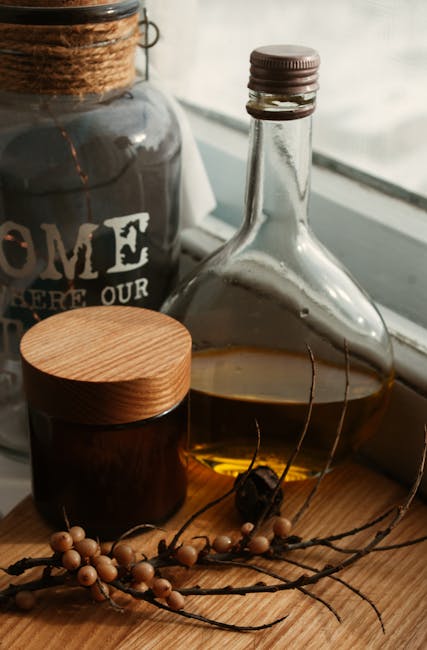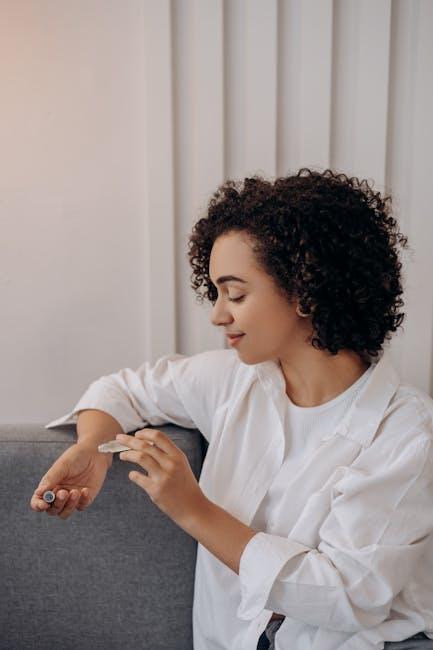Looking to spice up your life with some sweet scents? Not sure whether to dabble in essential oils or fragrance oils? Let’s break it down like a perfumed piñata and see which one will have you sniffing success and which one will leave you smelling like yesterday’s garbage. So hold onto your noses, folks, as we dive into the aromatic world of oils!
Key Differences Between Essential Oils and Fragrance Oils
So, you’re finally ready to dive into the world of scents, but you’re stuck trying to figure out the difference between essential oils and fragrance oils. Well, fear not, my curious friend, for I am here to shed some light on this aromatic mystery!
Let’s start with the basics. Essential oils are like the organic, free-range chickens of the scent world. They are derived from plants through a process of steam distillation or cold-press extraction. Fragrance oils, on the other hand, are like the synthetic, factory-farmed chickens. They are usually a blend of various chemicals and are created in a laboratory.
One key difference between essential oils and fragrance oils is their potency. **Essential oils** are super concentrated, so a little goes a long way. Just a drop or two can pack a big punch in your diffuser or homemade skincare products. **Fragrance oils**, on the other hand, are a bit more laid-back. You might need to use a few more drops to achieve the same level of scent intensity.
Another important distinction is their therapeutic benefits. **Essential oils** have been used for centuries for their healing properties. From lavender to tea tree, each oil has unique properties that can help with everything from stress relief to clearing up acne. **Fragrance oils**, on the other hand, are primarily used for their scent alone. While they might make your room smell like a tropical paradise, they won’t do much for your mind, body, or soul.
Understanding the Extraction Process of Essential Oils
Have you ever wondered how those delicious essential oils are extracted from plants? Well, wonder no more! Sit back, relax, and let me take you on a journey through the magical world of extraction.
First up, we have the classic method of steam distillation. Picture this: plants are placed in a giant pot with water, and as the water heats up, steam gently wafts through the plants, carrying their precious essences with them. This steam is then cooled down, condensing into a liquid that separates into water and oil. Voila! Essential oil extracted.
Next, we have cold pressing. This method is a bit like squeezing juice from an orange, except we’re squeezing oils from plants instead. By exerting pressure on the plant material, the oils are released without any heat involved. It’s like giving the plants a nice, relaxing massage to coax out their goodies.
Lastly, there’s solvent extraction. This technique involves using solvents like hexane to extract essential oils from plants. The solvent dissolves the plant material, leaving behind a concentrated solution. The solvent is then removed, leaving you with pure essential oil. It’s like playing a game of hide-and-seek with the oils, only the oils are really good at hiding.

Chemical Composition of Essential Oils versus Fragrance Oils
Essential oils and fragrance oils may both smell good, but what sets them apart is their chemical composition. Let’s break it down like a mad scientist!
Essential oils are like the fancy, all-natural, organic ingredients in a gourmet dish. They are extracted from plants through methods like steam distillation or cold pressing, retaining the pure essence of the plant. On the other hand, fragrance oils are like the cheap, artificial flavorings in a generic snack. They are made in a lab using synthetic chemicals to mimic the scent of certain plants or create unique fragrances.
When it comes to the nuts and bolts of the chemical composition, essential oils are composed of complex mixtures of volatile compounds like terpenes, esters, aldehydes, and more. These compounds not only give essential oils their distinct aroma but also provide therapeutic benefits. Fragrance oils, on the other hand, are usually made up of a single synthetic compound or a blend of them, lacking the depth and complexity of essential oils.
In conclusion, while both essential oils and fragrance oils can make your nose happy, it’s the chemical composition that truly sets them apart. So next time you’re shopping for scents, remember to sniff out the real deal – essential oils with their natural goodness, not the imposters with their artificial charm!

Benefits and Uses of Essential Oils in Aromatherapy
Essential oils are like the superheroes of the aromatherapy world. They come in tiny bottles, but oh boy, do they pack a powerful punch! From lavender to peppermint to eucalyptus, these oils have a wide range of benefits and uses that can make your life smell and feel so much better.
One of the best things about essential oils is their versatility. Need to relax after a long day? Just a few drops of lavender oil in a diffuser will have you feeling like you’re at a spa in no time. Got a pesky headache? A dab of peppermint oil on your temples will have those pounding pains running for the hills. These oils are like the Swiss army knives of wellness!
But wait, there’s more! Essential oils aren’t just good for your physical well-being; they can also work wonders for your mental health. Feeling stressed? Try rubbing a drop of chamomile oil on your wrists for instant calm. Need a mood boost? Diffuse some citrus oils for an instant pick-me-up. With essential oils, the power of aromatherapy is in the palm of your hand.
So the next time you’re feeling out of sorts, don’t reach for that sugary snack or that second cup of coffee. Instead, reach for a bottle of essential oil and let the magic of aromatherapy work its wonders. Your nose and your body will thank you!

Factors to Consider When Choosing Between Essential Oils and Fragrance Oils
Choosing between essential oils and fragrance oils can be a tough decision. Here are some factors to consider:
When choosing between essential oils and fragrance oils, one important factor to consider is the source of the oil. Essential oils are derived from plants through processes like distillation or cold pressing, while fragrance oils are typically synthetic and created in a lab. So if you’re a tree-hugger who wants to keep it all natural, essential oils might be the way to go.
Another factor to consider is the scent strength. Essential oils tend to have a more subtle scent compared to fragrance oils, which can be overpowering. So if you want to make sure your house smells like a lavender field and not a department store perfume aisle, you might want to opt for essential oils.
Cost can also be a factor in your decision. Essential oils are generally more expensive than fragrance oils, so if you’re on a budget, fragrance oils might be the better option. Plus, you can always tell your friends that your house smells like a million bucks even if you only spent a few bucks on fragrance oils.
Safety Precautions and Proper Dilution Methods for Essential Oils
So you’ve decided to jump on the essential oils bandwagon, huh? Well, before you start mixing and matching oils like a mad scientist, let’s talk about safety precautions and proper dilution methods. Trust me, you don’t want to end up smelling like a walking potpourri disaster.
First things first, always remember that essential oils are highly concentrated and can cause skin irritation if not properly diluted. So, unless you want to walk around with red, blotchy skin, make sure to follow these essential safety tips:
- Never apply undiluted essential oils directly to the skin. Trust me, you don’t want to learn the hard way that peppermint oil is NOT a substitute for cologne.
- Always do a patch test before using a new essential oil. You don’t want to discover that you’re allergic to lavender the moment you slather it all over your body.
- Avoid using certain oils around pets, children, or pregnant women. Because nothing ruins a relaxing aromatherapy session like a trip to the emergency vet.
Now, onto the fun part – diluting your essential oils! Remember, less is more when it comes to these potent little bottles of goodness. Here are some basic dilution methods to ensure you don’t accidentally create a potion that smells like a toxic waste dump:
- For adults: Mix 2-3 drops of essential oil per teaspoon of carrier oil, such as coconut oil or sweet almond oil. It’s all about finding that perfect balance, baby.
- For kids and sensitive skin: Stick to 1-2 drops of essential oil per teaspoon of carrier oil. Because nobody wants to be responsible for turning little Timmy into a walking rash.
Exploring the Various Applications of Fragrance Oils in Perfumery and Cosmetics
Have you ever wondered about the magical world of fragrance oils and their endless possibilities in the world of perfumery and cosmetics? Well, buckle up and get ready for a rollercoaster ride through the fascinating realm of scents and beauty products!
First up, let’s talk about the different applications of fragrance oils in perfumery. These little bottles of magic are like the secret ingredients in a delicious recipe. They can add depth, complexity, and character to a perfume, making it truly unique and unforgettable. From floral and fruity notes to woody and musky undertones, fragrance oils are the building blocks of a good scent.
Now, onto the world of cosmetics. Fragrance oils are not just limited to perfumes; they can also be found in various beauty products like lotions, creams, and even makeup. Imagine smelling like a bouquet of roses while applying your favorite body lotion or feeling like you’re walking through a tropical paradise with every swipe of your lipstick. The possibilities are endless!
So, next time you reach for your favorite perfume or skincare product, take a moment to appreciate the role fragrance oils play in creating that magical, sensorial experience. Who knew a few drops of scented oil could make such a difference?
FAQs
What exactly are essential oils and fragrance oils?
Oh, essential oils and fragrance oils, the dynamic duos in the world of scents! Essential oils are like the VIPs of the scent world, extracted from plants through a meticulous process. Fragrance oils, on the other hand, are the paparazzi – they may not be natural, but boy, do they know how to make a statement!
What are the main differences between essential oils and fragrance oils?
Alright, buckle up folks, because we’re about to dive deep into the essential vs. fragrance oil showdown! Essential oils are all-natural, coming straight from plants, while fragrance oils are crafted in a lab to mimic various scents. It’s like comparing a home-cooked meal to takeout – both delicious, but one is a labor of love!
What are the typical applications of essential oils and fragrance oils?
Oh, the possibilities are endless with these scent sensations! Essential oils are like the versatile best friend - they can be used in aromatherapy, skincare, cleaning products, you name it! Fragrance oils, on the other hand, are like the life of the party – perfect for candles, soaps, and other scented goodies!
Are there any precautions to take when using essential oils and fragrance oils?
Ah, the age-old question - can you have too much of a good thing? When it comes to essential oils, always remember that less is more! These potent powerhouses need to be diluted before use to avoid any skin irritation. Fragrance oils, on the other hand, are like that friend who always knows their limits – they’re ready to party, but in moderation!
In conclusion, which one is better – essential oils or fragrance oils?
And the million-dollar question - which scent sensation reigns supreme? Well, my dear readers, it all comes down to personal preference! Essential oils bring that natural, earthy vibe, while fragrance oils are like a burst of creativity in a bottle. So go ahead, mix and match, and find the perfect scent that speaks to your soul!
—
In Conclusion: Mix, Match, and Smell Great!
So there you have it, folks! Essential oils and fragrance oils may sound similar, but they’re actually quite different when it comes to ingredients and applications. Whether you’re a die-hard essential oil enthusiast or a fragrance oil fanatic, there’s no denying that both have their own unique benefits and aromas.
Next time you’re looking to spice up your life with a new scent, remember to mix, match, and experiment with different oils to create your own signature blend. Who knows, you might just stumble upon the perfect combination that leaves everyone wondering what your secret is. So go ahead, have fun exploring the world of oils, and remember – the nose knows best!






